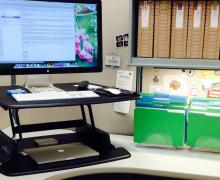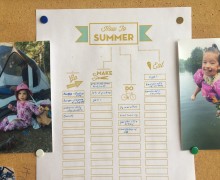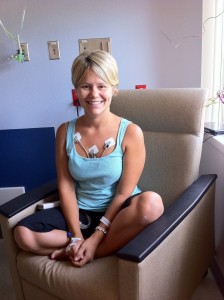“I think there’s something wrong with me. In case I don’t get back in time, you’d better stay here and take Owen to camp.”
I said something like this to my husband around 8:30 a.m. on a Sunday morning last August, after I’d spent the whole night awake, whimpering in pain and popping Advil four at a time. Once I finally told him how I was feeling and we decided I had “better get checked out,” I didn’t call 911 or rush to the ER.
Nope. I ate breakfast, helped pack for camp, took a shower, styled my hair, supervised a pre-schooler potty break, and put on earrings and makeup.
Then I drove myself to the hospital. For my date. With a heart attack.
Yes, you read that right. I’m a woman. I’m 37. I’m a distance runner and a healthy eater. I’m a normal weight, active, healthy, and not even particularly stressed. And I had a heart attack, just seven months ago.
February is Heart Disease Awareness month and I really want you to take it seriously. Not for me, because I survived and I’m healthy and thriving. But for the 435,000 other mothers, daughters, sisters, nieces, wives, lovers, and friends who will have a heart attack this year, and the 267,000 of them who will die from it.
Heart disease is the number one killer of women in this country. Number. One. It kills more women than the next four diseases combined, including all forms of cancer, yet only 50 percent of women know that fact and even fewer know their risk. And if they knew the dangers and they knew their risks, would they make the changes necessary to protect their hearts? Eighty percent of cardiac events could have been prevented through healthy lifestyle choices.
This is a message women need to hear over and over and over again. I knew that I had a family history of heart disease. I knew I had high cholesterol. I knew that women often explain away their symptoms: “I must have lifted something funny, hurt myself in yoga, maybe its heartburn,” all excuses I used for days as the pain steadily grew worse. And I knew that women’s heart attacks present differently than men’s and seem somehow, inexplicably, hard for doctors to spot. I knew all that and I still never imagined this could happen to me.
But it can, it could, and it did, and it could happen to you. Please take the time this month to learn about heart disease, your own risk, and what you can do about it. Then share it with the women you love. Heart disease is a women’s disease, and only we can stop it.
This article was originally written for the Minnesota Women’s Press and was published in February 2012.




